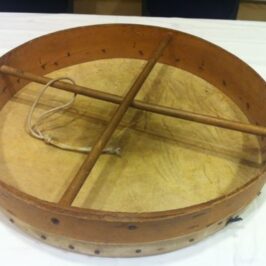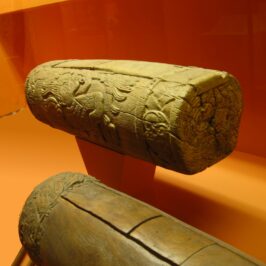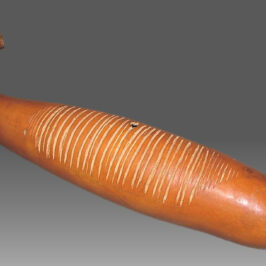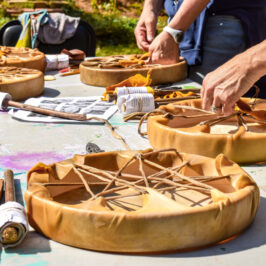Drums carry the beat of life, bridging the gap between the present and past. They have carried it since the dawn of civilization and will carry it far beyond us into the future, the rhythm of a beating heart, the beating heart of our mothers and of culture. So if you have a Djembe, Frame drum (medicine drum), or any other drum using natural skins, you’re going to want to take care of it as long as you possibly can. To care for and keep your drum properly, you are going to want to do some simple things.
Keep your drum tuned and conditioned
A Djembe drum should have a high drum/bass contrast. When everything starts sounding the same, you should have it tuned. Synthetic skins are not affecting by things such as temperature and moisture, but if yours has a natural skin, don’t be afraid of losing the bass when you tighten your drum- the bass is built into the shape, not the skin. Pay attention to changes in your drum’s environment, including altitude and humidity, and tune accordingly. Heat will tighten the skin it and make it pop, while cold or moisture can also damage it!
If you won’t be playing your Djembe for awhile, or if you will be shipping it, please loosen the skin. The Djembe is a hand drum, so don’t use a stick or mallet on it. Also be sure not to wear any rings or other hand jewelry while playing, as this can cause nicks, tears, or holes in the skin.
If you play your drum regularly, the oils from your skin will keep it condition it, so if your hands start drying out, it means your skin is drying out. Try rubbing some Shea butter or coconut oil on your hands and (some say) the drum skin if it is very dry and give it a good play. Keeping care of the wood of your drum is just as important – if your drum isn’t lacquered, be sure to clean the wood with a damp, soft, clean cloth and then oil it.
Spiritually, it is recommended to smudgeyour drum with sage or palo santo on a regular basis. When a drum comes to you, you are being called to play, consider it an honor. Drumming can be considered a spiritual practice and each culture has different outlooks on spiritually caring for your drum. Every culture that utilizes drums for spiritual purposes considers drum to be living beings, each animal or tree used to build that drum is integrated into this new life. Once built, the drum is birthed into existence and perceived as a sacred object, or ceremonial tool.
Store your drum properly
As decorative as your drum will be, please keep it stored in a case, bag, or wrapped in a cloth or blanket. Guests will pick it up and play it, and a dog will see one of the most appetizing chew toys it has seen in its life. Spiritually, a sacred drum is a living, sentient being and should be treat it as such. Store it in the same environment as you would yourself.
If your drum should need repair, you can send it to a reputable drum repair specialist, or to learn how to learn how to repair your drum yourself in one of my workshops. If your drum has a painted design that has faded, touch it up with some acrylic paint and spray with a matte fixative.
Resources:
http://www.rhythmtraders.com/
http://www.motherrhythm.com/
http://www.sunreed.com/faqs/
http://shamanicdrumming.







